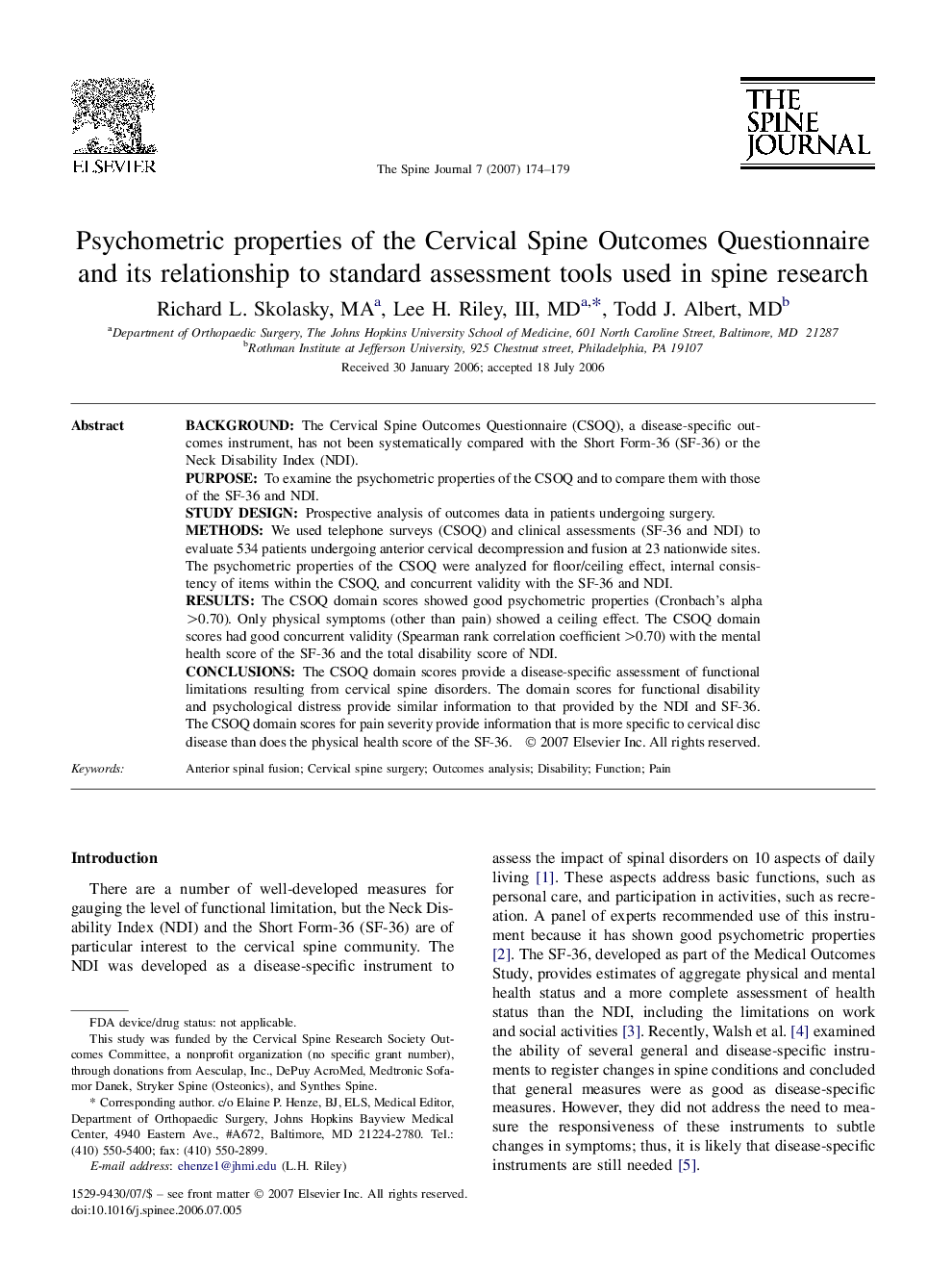| Article ID | Journal | Published Year | Pages | File Type |
|---|---|---|---|---|
| 4099367 | The Spine Journal | 2007 | 6 Pages |
BackgroundThe Cervical Spine Outcomes Questionnaire (CSOQ), a disease-specific outcomes instrument, has not been systematically compared with the Short Form-36 (SF-36) or the Neck Disability Index (NDI).PurposeTo examine the psychometric properties of the CSOQ and to compare them with those of the SF-36 and NDI.Study designProspective analysis of outcomes data in patients undergoing surgery.MethodsWe used telephone surveys (CSOQ) and clinical assessments (SF-36 and NDI) to evaluate 534 patients undergoing anterior cervical decompression and fusion at 23 nationwide sites. The psychometric properties of the CSOQ were analyzed for floor/ceiling effect, internal consistency of items within the CSOQ, and concurrent validity with the SF-36 and NDI.ResultsThe CSOQ domain scores showed good psychometric properties (Cronbach's alpha >0.70). Only physical symptoms (other than pain) showed a ceiling effect. The CSOQ domain scores had good concurrent validity (Spearman rank correlation coefficient >0.70) with the mental health score of the SF-36 and the total disability score of NDI.ConclusionsThe CSOQ domain scores provide a disease-specific assessment of functional limitations resulting from cervical spine disorders. The domain scores for functional disability and psychological distress provide similar information to that provided by the NDI and SF-36. The CSOQ domain scores for pain severity provide information that is more specific to cervical disc disease than does the physical health score of the SF-36.
